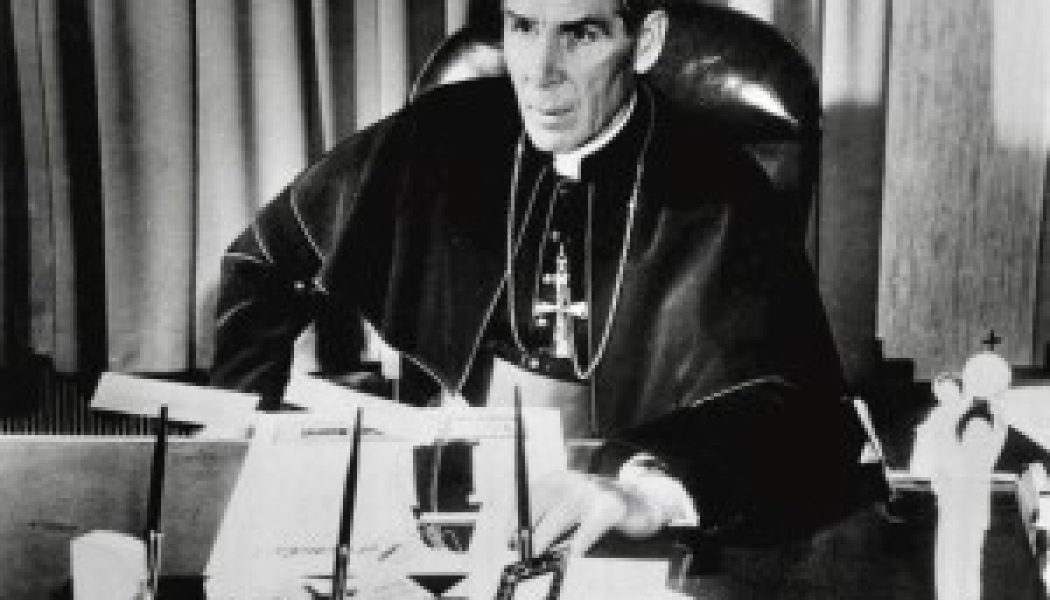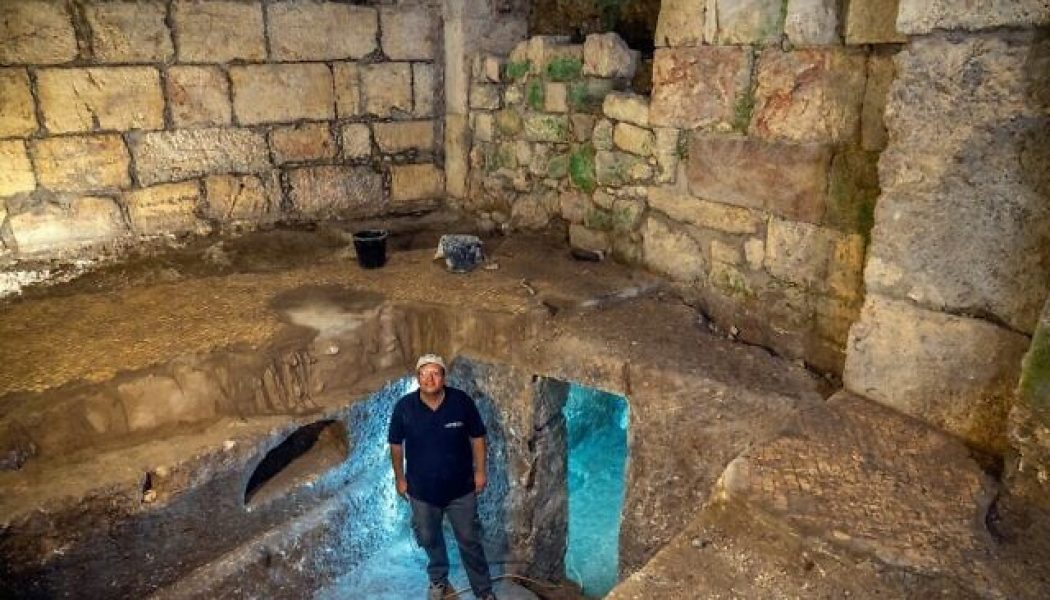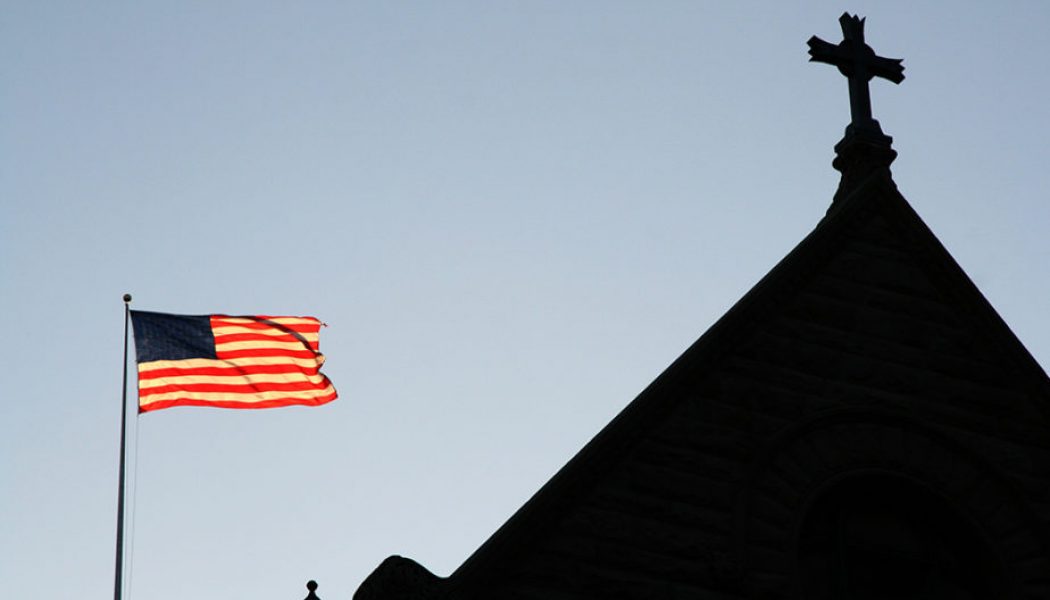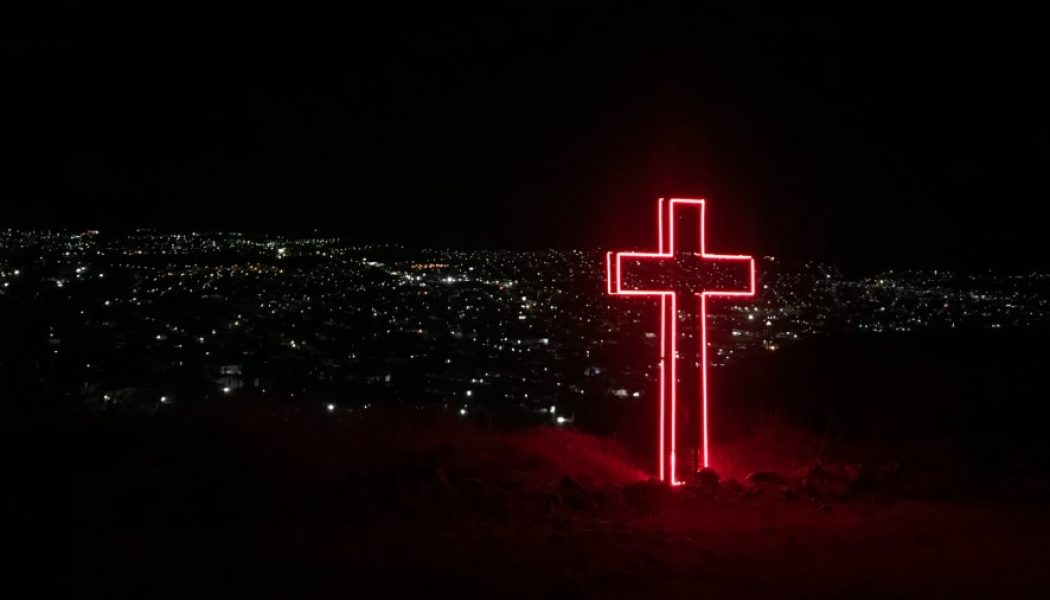Left
“Lord, teach us to pray” — Reflections on Fulton Sheen…
When I was a child, my mother would regularly put my brothers and me to sleep by playing Fulton Sheen talks on tape and (later) on CD. I remember marveling first at the man’s voice, its weathered timbre and solemn cadence and massive fluctuations in volume. What held my attention next were the stories: stories of souls saved and souls lost and souls still hanging in the balance, with an occasional humorous story thrown in for comic relief. But what finally made Fulton Sheen my lifetime mentor were his ideas—his beautiful, crystalline, elemental articulations of Catholic doctrine and Catholic morality. Later on, when I got my first teaching job (about fifteen years ago now), I simply wouldn’t give a lecture on any topic whatsoever without looking to see if Sheen had a talk on the subject th...
Opening salvos in Pope Francis’ financial ‘Reform 2.0’…
ROME – Facing both a looming economic crisis and reminders that the anti-financial scandal measures adopted to date haven’t been fully effective, Pope Francis and his Vatican team this week have moved to try to defuse the bomb before it goes off, closing several Swiss holding companies responsible for portions of its assets and reallocating internal control over financial data collection. Even together, the two moves hardly represent a comprehensive fix. Yet they do suggest that dubious transactions, which have generated scandal and so far cost five employees their jobs, coupled with several financial shortfalls caused by the coronavirus pandemic, certainly have gotten the pope’s attention. On Tuesday, Corriere della Sera, Italy’s newspaper of record, reported that Francis has shut down ni...
The icy Antarctic village where you must have your appendix removed before moving in…
Villa Las Estrellas might be the closest you can get on Earth to experiencing life on another planet. Photo by Peter Wan. Welcome to Villas Las Estrellas Imagine that you had to remove your appendix to live in your hometown – and your family had to do the same. That’s the only option for long-term residents – even the children – of Villas Las Estrellas, one of the few settlements in Antarctica where some people live for years rather than weeks or months. Appendix removal is a necessary precaution for the handful of people who stay longer-term because the nearest major hospital is more than 1,000km (625 miles) away, past the tip of King George Island and on the other side of the Southern Ocean’s icy swell. There are only a few doctors on base, and none are specialist surgeons. Photo by Simó...
This Sunday, the Great Commission and the pandemic…
By Tom Hoopes, May 21, 2020 As the world starts to return — ever so slowly, step by step — toward normalcy, Catholics have an enormous opportunity to help people cope with the new world we live in. This Sunday’s Gospel — whether it’s the Seventh Sunday of Easter for you (in the ecclesial provinces of Boston, Hartford, New York, Newark, Philadelphia, or Omaha) or Ascension Sunday (everywhere else) — gives great direction about what comes next. The way Jesus left was a lesson in what to do in his absence. In the first reading for the Ascension, before he leaves them Jesus “enjoined them not to depart from Jerusalem,” but to wait and pray for “the promise of the Father,” assuring them “in a few days you will be baptized with the Holy Spirit.” “You will receive power when the Holy Spirit ...
The strange account of the day “angels” saved British troops during World War I…
Nations and their armies have often gone to war believing “God is on our side.” In a little-known incident at the outset of World War I, that sentiment seemed to have been visibly affirmed for a number of British soldiers. In early August 1914, soon after tensions on multiple fronts and levels erupted into war, Great Britain dispatched the British Expeditionary Force to counter the German invasion of Belgium. The Germans had their sights on Paris, and the BEF met the German Army at the Belgian town of Mons, southwest of Brussels. The BEF was vastly outnumbered but fought valiantly against the forces of the Second Reich. Unfortunately, they could not hold the line. As they retreated, the Germans pursued them. By August 26, the two sides engaged in fierce battle at Le Cateau, France. Multipl...
The Lord of the Flies and the Lord of All…
Herein lies a difference between the Catholic worldview and the secular one. Rutger Bregman’s excellent article The Real Lord of the Flies: What Happened When Six Boys Were Shipwrecked for 15 Months was published in London’s The Guardian a few days ago. The article explored the real-life case of a group of schoolboys who were marooned on a deserted island in 1965. Fortunately, life doesn’t always imitate art as the real case of the marooned boys turns out well and not all like British author William Golding’s magnificent 1954 bestseller, The Lord of the Flies. Golding’s book centers on a group of British schoolboys who, having been evacuated due to a war, are subsequently marooned on an uninhabited island. The situation is at first idyllic ― no school, no adults, no rules and as much food ...
Living underground before the Romans? 2,000-year-old rooms found near the Western Wall | The Times of Israel…
A singular two-millennia-old subterranean system of three rooms has been uncovered near the Western Wall. The three-room complex — painstakingly chiseled by hand out of bedrock prior to the fall of Jerusalem in 70 CE — is the first evidence of everyday life gone underground in the ancient city. “This is a unique finding. This is the first time a subterranean system has been uncovered adjacent to the Western Wall,” said Israel Antiquity Authority co-directors Dr. Barak Monnickendam-Givon and Tehila Sadiel in a press release Tuesday. “You must understand that 2,000 years ago in Jerusalem, like today, it was customary to build out of stone [blocks]. The question is, why were such efforts and resources invested in hewing rooms underground in the hard bedrock?” said the archaeologists. Get The ...
Games intellectuals play…
Shortly after President John F. Kennedy’s cabinet met for the first time, Vice President Lyndon Johnson waxed enthusiastic about the best and the brightest to his mentor, Speaker Sam Rayburn. They were all so brilliant, LBJ raved, especially “the fellow from Ford with the Stacomb on his hair” (Robert McNamara). Mr. Sam paused (perhaps taking a contemplative sip of bourbon-and-branch) and then replied, “Well, Lyndon, you may be right and they may be every bit as intelligent as you say, but I’d feel a whole lot better about them if just one of them had run for sheriff once.” That gem of political wisdom came to mind while I was pondering one of the strangest phenomena in this season of many discontents: the emergence of a new “Catholic integralism” that (in the words of an advocate) promotes...
On the role of curiosity in evangelization…
In yesterday’s post we discussed how the word curiosity can have a good and a bad meaning. In that post we focused on sinful curiosity after distinguishing from good and helpful forms of it. In today’s post we look at a more positive and intriguing understanding of curiosity and apply it to evangelization. In the world of evangelization, the concept of curiosity is almost never discussed. If anything, evangelizers are encouraged to quickly satisfy any curiosity by supplying all sorts of answers to questions that arise about the faith. Apologetical tracts, books, catechisms, and videos abound. Curiosity, it would seem, is something to be quashed or at least overcome quickly. Allowing a person to wonder why for any length of time seems almost dangerous, especially in a “search-engine” cultur...
Listen to these atheists when they warn: Without Christianity, we are heading into a thick and impenetrable darkness…..
Historian Tom Holland is known primarily as a storyteller of the ancient world. Thus, his newest book Dominion: How the Christian Revolution Remade the World, came as something of a surprise for several reasons. First, Tom Holland is not a Christian. Second, Holland’s book is one of the most ambitious historical defenses of Christianity in a very long time. While studying the ancient world, Holland writes, he realized something. Simply, the ancients were cruel, and their values utterly foreign to him. The Spartans routinely murdered “imperfect” children. The bodies of slaves were treated like outlets for the physical pleasure of those with power. Infanticide was common. The poor and the weak had no rights. From There to Here … How did we get from there to here? It was Christianity, Holland...
Never neglect the First Precept of the Church. Be grateful for it. It tethers you to God and keeps you on the right path through life…..
Froh erfülle deine Pflicht. It was twenty years ago that I saw this German phrase in needlepoint in an antique shop in the Shenandoah Valley. “Do your duty cheerfully” is close enough to its literal meaning. I remember thinking at the time that it was a charming relic of Pennsylvania Dutch Lutheran culture. As is true of many in my generation, my thinking about the moral and spiritual life has been shaped by the teaching of the late Servais Pinckaers, O.P., who did so much to recover a synthetic vision in which natural inclinations, human freedom, and divine grace work in concert. Together with St. John Paul II’s Veritatis Splendor, Pinckaer’s Sources of Christian Ethics helped to reset Catholic discourse. Rather than a rear-guard action against the latest infidelities proposed by dissente...
Sinful curiosity is the root of many sins…
Curiosity is one of those qualities of the human person that are double-edged swords. It can cut a path to glory or it can be like a dagger of sin that cuts deep into the soul. As to its glory, it is one of the chief ingredients in the capacity of the human person to, as Scripture says, “subdue the earth,” to gain mastery over the many aspects of creation of which God made us stewards. So much of our ingenuity and innovation is rooted in our wonder and awe of God’s creation and in those two little questions, “How?” and “Why?” Yes, we are curious as to how things work and why they work as they do. This curiosity burns within us and motivates us to unlock many of nature’s secrets. Curiosity drives us to learn and to gain mastery—often for good, but sometimes for ill. What a powerful for...





















